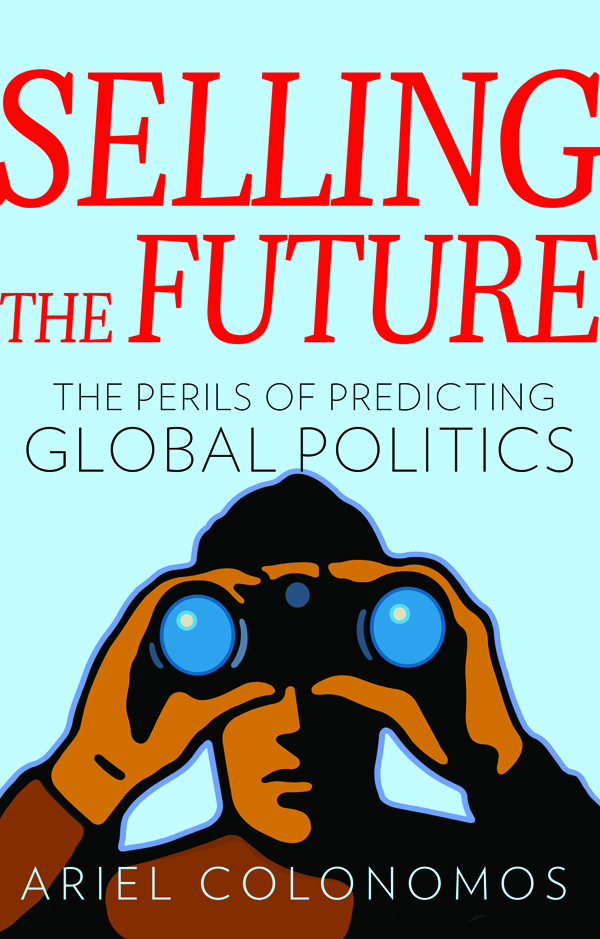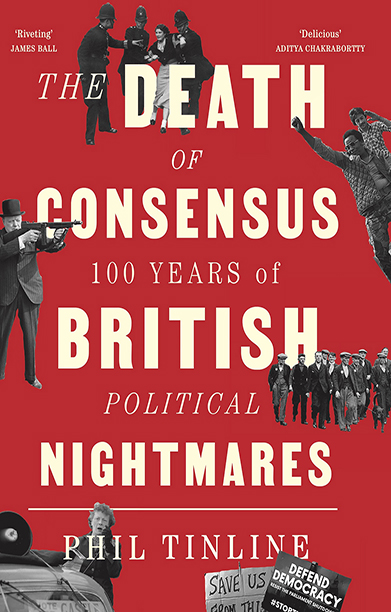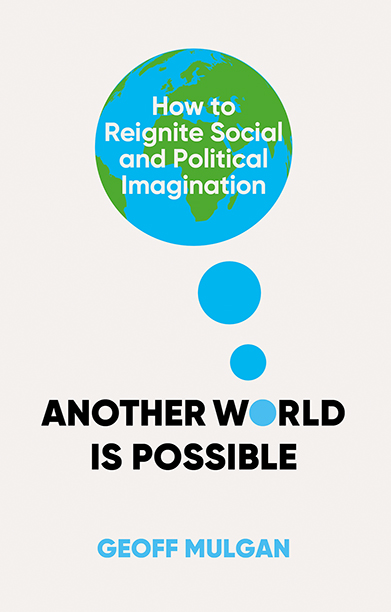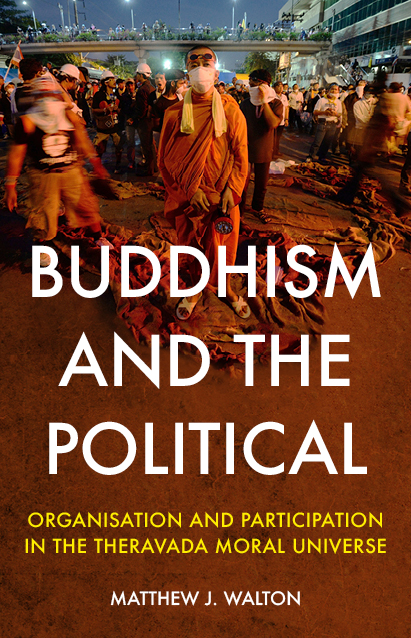Selling the Future
The Perils of Predicting Global Politics
Part of the CERI/Sciences Po. seriesTranslated by Gregory Elliott
A cautionary investigation of the global futures business – political risk, investment funding, think tanks – and how its predictions distort our understanding of the world we live in.
Winner of the 2017 ISA Ethics Book Award 2017
Description
In an age of uncertainty, those who can anticipate revolution, the outbreak of wars, or which states might default are much in demand. The marketplace of ideas about the future is huge, and includes ‘wonks’, scholars and pundits who produce scenarios, predictions and ratings. The more opaque the future seems to be, the further the relationship between knowledge and power intensifies — above all the nexus between those who sell their expertise and those who consume it.
In his investigation of the paradoxes of forecasting, Ariel Colonomos interrogates today’s knowledge factories to reveal how our futures are shaped by social scientists, think-tanks and rating agencies. He explains why conservative and linear predictions prevail, and why the future, especially when linked to national interest, reflects a systematic search for stability. The notion of a globalised world whose main characteristic is speed, and where predictions have accelerating, self-fulfilling effects, is obsolete. Those who are supposed to know reassure those who are supposed to act. Their preferences converge, and thus the industry of the future has a decelerating effect on world politics. These ‘lords of knowledge’ reinforce pre-existing beliefs, create expectations about the future, while obstructing its vision when — inevitably — it diverges from its orderly path.
Reviews
‘Colonomos ends by pondering the ambivalence humans have toward knowing the future. Readers are induced to contemplate an age-old issue: the perfectibility of the human condition. Is the model ever upward evolution or civilizational rise, decline, and fall?’ — CHOICE
‘Colonomos provides an invaluable framework for debating how, by whom, and for what purpose responsible predictions about the future should be made.’ — Ethics & International Affairs
‘an interesting account of what the author terms “the marketplace of ideas about the future” and the experts who produce scenarios, predictions and credit ratings about countries’ political and financial stabilities.’ — Perspectives on Terrorism Journal Counterterrorism Bookshelf
‘Written in powerful and lucid prose, Selling the Future presents trenchant insights on the treatment of the future in theoretical and empirical international relations and is the mark of a vivd imagination that crosses, foxlike, the disciplines of IR, economics, philosophy and ethics.’ — Professor Richard Beardsworth, Chair of the 2017 ISA Ethics Book Award committee and Head of International Politics, Aberystwyth University
‘Since antiquity people have sought to predict. Indeed it is hard to imagine not doing so. In this learned and thoughtful treatment filled with insight and ideas, Ariel Colonomos takes us through how people and institutions have sought to predict, why they have done so, and what the implications are for our governments and societies.’ — Robert Jervis, Professor of International Politics, Columbia University, and author of Why Intelligence Fails: Lessons from the Iranian Revolution and the Iraq War
‘Every age has had its futurologists, whether the soothsayers of old or modern-day social scientists and economic forecasters. How do they go about their work? How reliable are their pronouncements? What accounts for the massive errors they routinely make? These are among the questions that Colonomos explores in this learned, lucid and iconoclastic book.’ — Rajan Menon, Anne and Bernard Spitzer Professor of Political Science, City University of New York
‘Selling the Future is a wide-ranging meditation on the various ways in which the future is represented and capitalised upon in the present. From defence intellectuals to prediction markets, and from credit scores to think tanks and futurologists, Colonomos’ richly argued book demonstrates the centrality of “oracular networks” in contemporary politics, dissects their built-in blind spots, and makes a strong argument for building a “public sphere of futures”.’ — Gil Eyal, Professor of Sociology, Columbia University
‘Ariel Colonomos, operating in an oeuvre he has seemingly made his own, takes his reader on a historical tour of the prediction industry. From the ancient oracles of the streets of Athens, Jerusalem and Rome to the halls of power in Washington, DC, Colonomos demonstrates our enduring fascination with the future in a way that will engage any reader.’ — Simon Reich, Professor in the Division of Global Affairs and Department of Political Science, Rutgers University
‘Colonomos explores the uses and risks of anticipation in spheres as different as political consultancy groups in Washington, DC and financial rating agencies. He shows the limitations of the “industry of the future” by describing how anticipations embedded in today’s values and priorities fail to account for future changes in our values and priorities.’ — Roberto Poli, UNESCO Chair in Anticipatory Systems, University of Trento
‘Who predicts the future best? Theory-driven “hedgehogs” or data-driven “foxes”? A handful of top experts or a host of amateurs? If crowds are so wise, why are markets forever growing bubbles? Why does the US intelligence community use a story-telling format to forecast the future? Read this astonishingly original book and learn the answers.’ — Jack Snyder, Professor of International Relations, Columbia University, and author of Electing to Fight: Why Emerging Democracies Go to War
Author(s)

Ariel Colonomos is a Senior Research Fellow at CNRS (the National Center for Scientific Research) and a Research Professor at CERI-Sciences Po in Paris. He has also held numerous visiting appointments at Columbia University. His research focuses on predictions and forecast in international relations, global norms, the ethics of war and the epistemology of IR.




